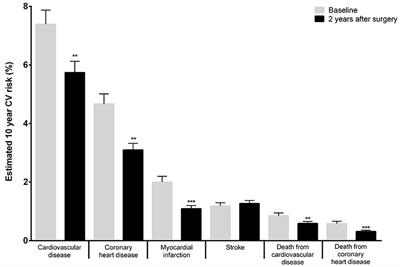REVIEW
Published on 19 Sep 2019
Metabolic and Endocrine Consequences of Bariatric Surgery

doi 10.3389/fendo.2019.00626
- 32,121 views
- 83 citations
14k
Total downloads
54k
Total views and downloads
You will be redirected to our submission process.
REVIEW
Published on 19 Sep 2019

REVIEW
Published on 19 Sep 2019

ORIGINAL RESEARCH
Published on 21 May 2019

REVIEW
Published on 16 Apr 2019

CASE REPORT
Published on 15 Jan 2019

REVIEW
Published on 18 Dec 2018

ORIGINAL RESEARCH
Published on 28 Nov 2018

